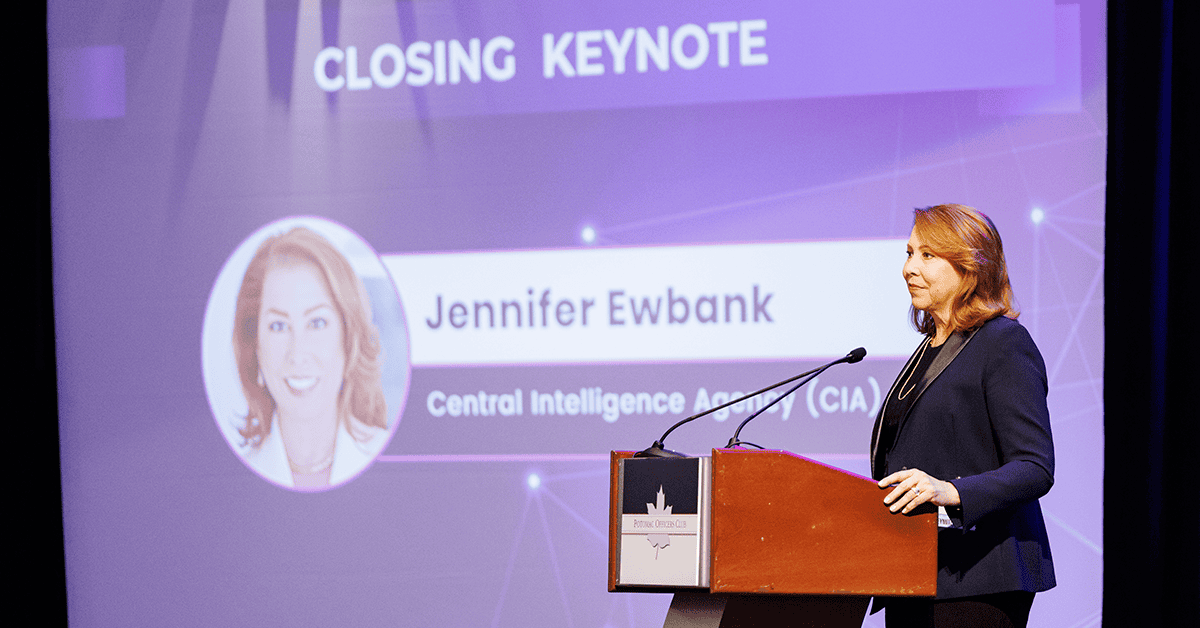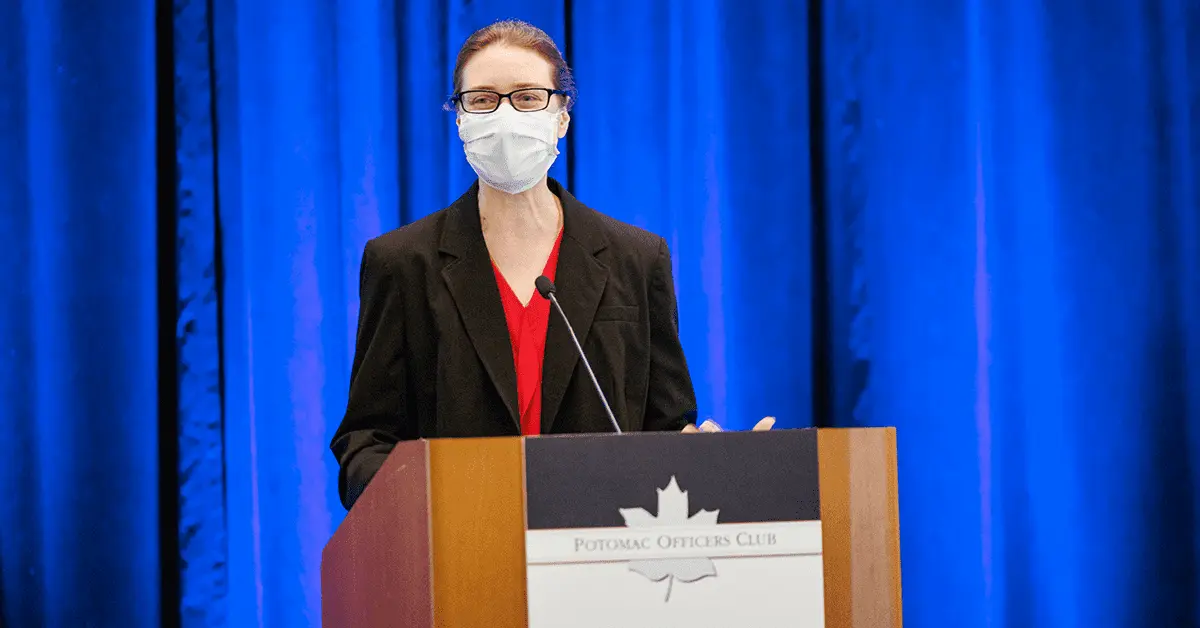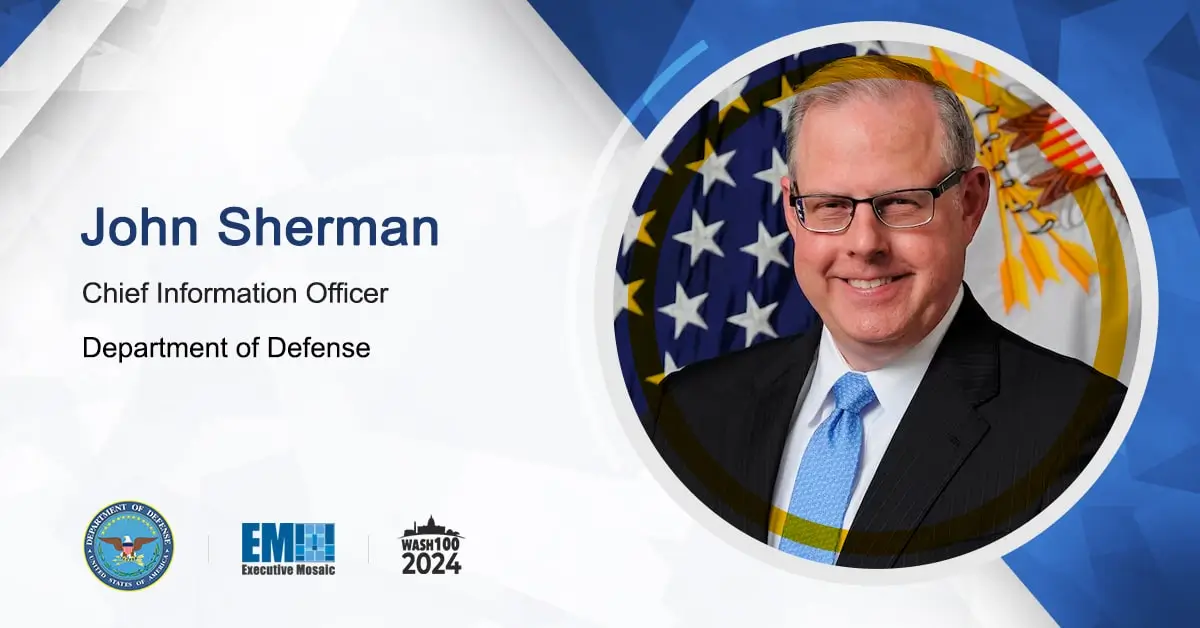At the Potomac Officers Club’s 2023 9th Annual Intel Summit, Central Intelligence Agency Deputy Director for Digital Innovation Jennifer Ewbank painted a less inflammatory picture of the United States and China’s geopolitical relationship than others in the federal government have been prone to in recent times. She acknowledged that our economies are “inextricably intertwined” and commented how the PRC’s accomplishments in “artificial intelligence, 5G communications, smart cities, autonomous systems, quantum research, mobile applications and a whole lot more” have undeniably helped lift many in the nation out of poverty in the last couple of decades.
However, as Ewbank described in her afternoon keynote address, “technology is a double-edged sword,” and is being used for starkly different purposes here and overseas in “two competing visions for the future.” The PRC is attempting to perpetuate a certain “digital authoritarianism…seek[ing] to monitor and control its own society and undermine its competitors around the world,” Ewbank said, while the “imperfect democracy” of the U.S. “strives to support society and economic development and promote transparency.”
POC hosts fascinating, essential events on a monthly basis. On Oct. 24th, experts from the Defense Threat Reduction Agency and across the government and GovCon spheres will take a look at CJADC2 and other innovative warfighting tactics at the Achieving Transformative Cooperation for National Defense Forum. Register now, as tickets are limited and going fast. Also be sure to check out the full roster of upcoming POC events here.
Ewbank said she believes we’re in something of a “Digital Sputnik” moment. Just as the 1957 launch of the first artificial Earth satellite acted as a motivation for industry and the government to find new ways to partner and spur innovation together in the space arena, she thinks the technological progress being made by China and other countries should and will provide a catalyst for necessary private-public collaboration in our current “race for ideas” being “played out across the digital landscape.”
“We really have to work together in a new and closer way…Certainly many of our greatest accomplishments in the past have been fueled by the partnership between industry and government. So, let’s join forces this time again and win this race together,” Ewbank encouraged.
She praised U.S. commercial industry’s role in leading the charge for technological pursuits, calling the private sector “our real engine of innovation” and said she thinks the government needs to do its part as a “fast follower.”

However, Ewbank was cautious in her consideration of industry-favorite AI, casting doubt on whether it would ever be a major focus in the CIA.
“I do not envision a future where there’s going to be some sort of AI-generated autonomous decision-making in the CIA, but AI can, does and will free up our officers, frankly, to focus on the hard problems, to eliminate routine transactional work,” she issued plainly.
Currently, Ewbank cited that AI is being employed by foreign language officers to “more rapidly select, triage [and] translate foreign intelligence,” as well as by warfighters in order to “triage, detect and alert on objects of importance to their mission” and by analysts “to pinpoint the reporting of potentially greatest intelligence value for further review.”
The latest and greatest technologies being utilized by the federal government will be much-discussed at POC’s upcoming Achieving Transformative Cooperation for National Defense Forum, an unmissable networking and informational opportunity hosted at 2941 Restaurant in Falls Church, Virginia on Oct. 24. It will feature high-profile speakers from the Defense Threat Reduction Agency and more, as well as a delicious breakfast spread. Register today!








